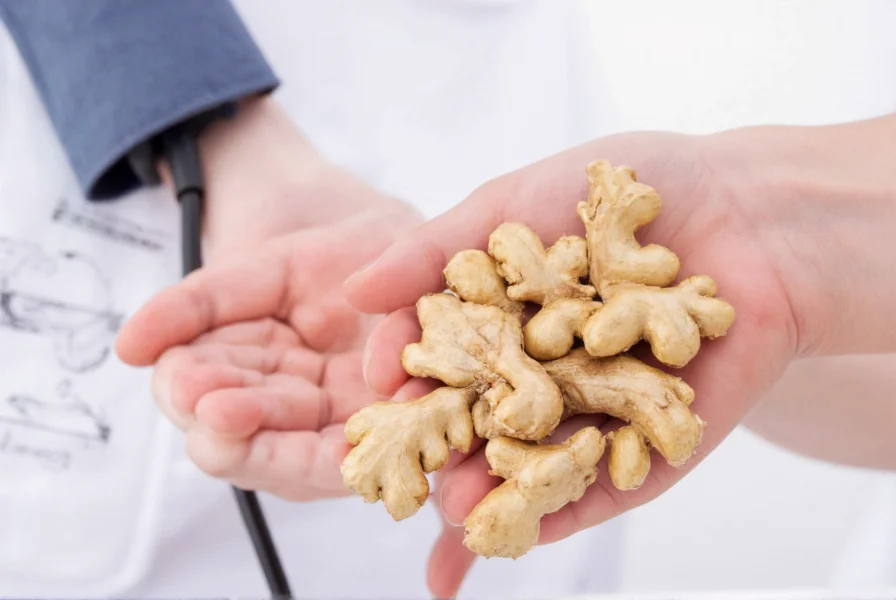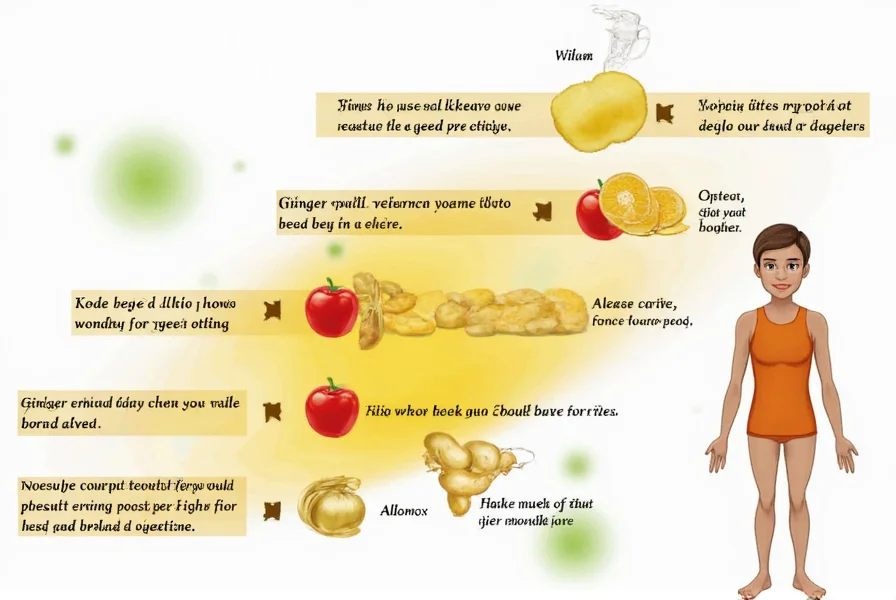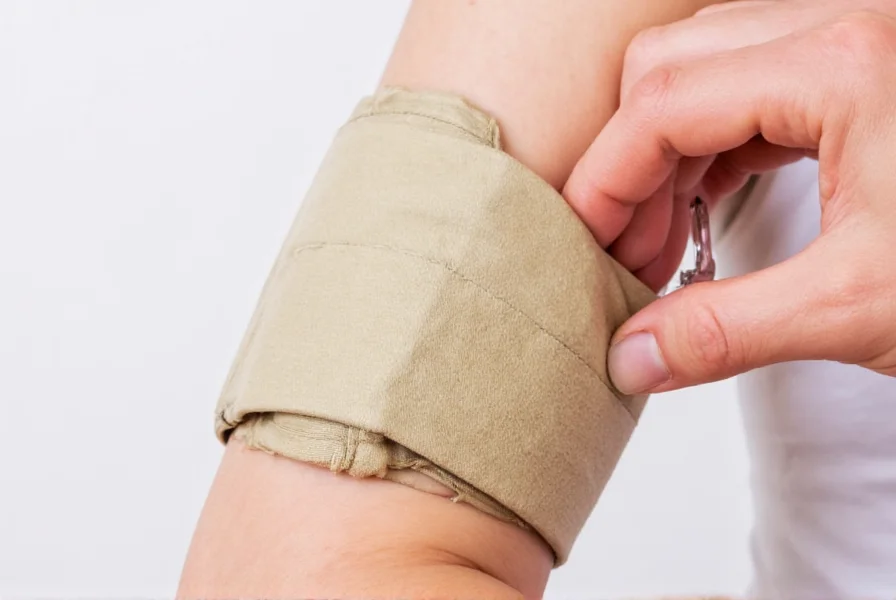For individuals exploring natural approaches to manage hypertension, ginger has gained attention as a potential complementary option. This comprehensive analysis examines what current scientific evidence reveals about ginger's effects on blood pressure, separating fact from popular claims while providing practical guidance for those considering this natural remedy.
The Science Behind Ginger and Blood Pressure Regulation
Ginger contains bioactive compounds, particularly gingerols and shogaols, which demonstrate several physiological effects relevant to cardiovascular health. These compounds appear to influence blood pressure through multiple mechanisms:
- Vasodilation effects: Ginger may promote relaxation of blood vessels by enhancing nitric oxide production, which helps widen arteries and improve blood flow
- Antioxidant properties: The antioxidants in ginger combat oxidative stress, a contributing factor to hypertension development
- Anti-inflammatory action: Chronic inflammation is linked to cardiovascular issues, and ginger's anti-inflammatory effects may provide protective benefits
- Calcium channel modulation: Some research suggests ginger may affect calcium channels in vascular tissue, potentially reducing vascular resistance
These mechanisms collectively contribute to ginger's potential blood pressure-lowering effects, though the magnitude of these effects in humans requires further investigation.

Clinical Evidence: What Research Says About Ginger and Hypertension
Multiple studies have examined ginger's impact on blood pressure, with varying results. A 2021 systematic review published in the Journal of Human Hypertension analyzed 12 clinical trials involving 752 participants. The review concluded that ginger supplementation showed modest reductions in both systolic and diastolic blood pressure, particularly in individuals with elevated baseline measurements.
| Study | Participants | Ginger Dosage | Blood Pressure Change | Duration |
|---|---|---|---|---|
| Khajehdehi et al. (2012) | 60 hemodialysis patients | 1.5g daily | ↓ 8.1/4.9 mmHg | 12 weeks |
| Azimi et al. (2016) | 43 type 2 diabetes patients | 2g daily | ↓ 7.6/4.2 mmHg | 12 weeks |
| Nikooyeh et al. (2019) | 85 metabolic syndrome patients | 3g daily | ↓ 5.2/3.1 mmHg | 8 weeks |
While these findings are encouraging, researchers note important limitations. Most human studies have been relatively small, short-term, and often focused on specific populations with comorbid conditions. Additionally, the optimal dosage and formulation of ginger for blood pressure management remain unclear.
How to Incorporate Ginger for Blood Pressure Support
If you're considering adding ginger to your hypertension management plan, here's what current evidence suggests about effective usage:
- Dosage considerations: Most studies showing benefits used between 1-3 grams of ginger daily, equivalent to about 1-2 teaspoons of fresh grated ginger or 1/2-1 teaspoon of powdered ginger
- Forms of ginger: Fresh ginger, dried powder, extracts, and teas all contain active compounds, though concentrations vary
- Timing: Consuming ginger with meals may enhance absorption and reduce potential gastrointestinal side effects
- Consistency: Regular daily consumption appears necessary to maintain potential benefits
For those exploring how to use ginger for high blood pressure naturally, consider these practical approaches:
- Add freshly grated ginger to morning smoothies or oatmeal
- Brew ginger tea by steeping 1-2 inches of fresh ginger in hot water for 10 minutes
- Incorporate ginger into stir-fries, soups, and salad dressings
- Consider standardized ginger supplements after consulting with your healthcare provider

Safety Considerations and Potential Interactions
While ginger is generally safe for most people when consumed in culinary amounts, higher therapeutic doses require careful consideration, especially for those with hypertension. Important safety points include:
- Medication interactions: Ginger may enhance the effects of blood pressure medications, potentially causing hypotension (abnormally low blood pressure)
- Blood thinning effects: Ginger has mild anticoagulant properties, which could interact with blood-thinning medications like warfarin
- Surgical considerations: Discontinue high-dose ginger at least 2 weeks before scheduled surgery due to bleeding risk
- Pregnancy: While culinary amounts are generally safe, high-dose ginger supplements during pregnancy should be discussed with a healthcare provider
Individuals with is ginger safe for high blood pressure medication users concerns should consult their physician before adding ginger to their regimen, as it may require medication adjustments.
Ginger vs. Conventional Hypertension Treatments
It's crucial to understand that ginger should never replace prescribed hypertension medications. The blood pressure reductions observed in studies with ginger are modest compared to pharmaceutical interventions:
- Standard antihypertensive medications typically reduce systolic BP by 10-15 mmHg
- Ginger studies show average reductions of 5-8 mmHg in systolic pressure
- Ginger's effects appear complementary rather than substitutive for conventional treatment
For those researching can ginger lower blood pressure without medication, current evidence suggests it may provide modest support but is unlikely to sufficiently control hypertension as a standalone treatment for most individuals with clinically diagnosed high blood pressure.
When to Consult Your Healthcare Provider
Before incorporating ginger into your blood pressure management strategy, consult your healthcare provider if you:
- Have been diagnosed with hypertension
- Are taking blood pressure medications
- Have a history of bleeding disorders
- Are scheduled for surgery within the next two weeks
- Are pregnant or breastfeeding
Your healthcare provider can help determine whether ginger might be a safe complementary approach for your specific situation and whether medication adjustments might be necessary.
Conclusion: A Balanced Perspective on Ginger and Blood Pressure
Ginger shows promise as a complementary approach for blood pressure management, with scientific evidence supporting modest benefits through multiple physiological mechanisms. However, the current research has limitations, and ginger should not be viewed as a replacement for conventional hypertension treatment.
For those exploring natural remedies for high blood pressure with ginger, the most prudent approach involves using ginger as part of a comprehensive lifestyle strategy that includes a heart-healthy diet, regular exercise, stress management, and prescribed medications when necessary. Always consult with your healthcare provider before making changes to your hypertension management plan.
Frequently Asked Questions
How much ginger should I take for high blood pressure?
Research suggests 1-3 grams of ginger daily may provide blood pressure benefits, equivalent to about 1-2 teaspoons of fresh grated ginger. However, optimal dosage varies by individual, and you should consult your healthcare provider before starting ginger supplementation, especially if you're taking blood pressure medications.
How long does it take for ginger to lower blood pressure?
Studies showing blood pressure benefits from ginger typically involved 8-12 weeks of consistent daily use. Individual responses vary, and ginger's effects are generally modest compared to prescription medications. Regular monitoring of your blood pressure is recommended if using ginger as a complementary approach.
Can I take ginger with blood pressure medication?
Ginger may enhance the effects of blood pressure medications, potentially causing your blood pressure to drop too low. Consult your healthcare provider before combining ginger with hypertension medications, as they may need to adjust your medication dosage to prevent hypotension.
What's the best way to consume ginger for blood pressure benefits?
Both fresh and dried ginger appear effective. You can add freshly grated ginger to meals, brew ginger tea, or use standardized supplements. Consistency is key—daily consumption appears necessary to maintain potential benefits. Culinary use is generally safe, but therapeutic doses should be discussed with your healthcare provider.
Are there any side effects of using ginger for high blood pressure?
In culinary amounts, ginger is generally well-tolerated. Higher therapeutic doses may cause mild gastrointestinal discomfort in some people. More importantly, ginger may interact with blood pressure medications (potentially causing hypotension) and blood-thinning medications. Always consult your healthcare provider before using ginger therapeutically for blood pressure management.











 浙公网安备
33010002000092号
浙公网安备
33010002000092号 浙B2-20120091-4
浙B2-20120091-4